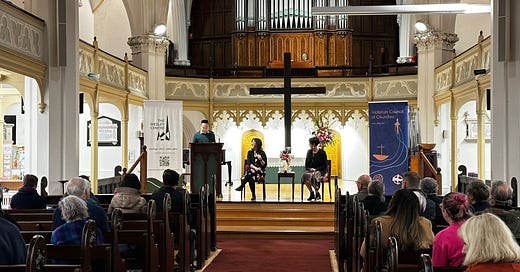Daniel Sihombing Responds to "When God Became White" Lecture
This past summer, I was honored to be invited to give a public lecture on my book, When God Became White, at The Wesley Centre in Melbourne. Dr. Robyn Whitaker is the director of The Wesley Centre and organized this wonderful event co-sponsored with the Victoria Council of Churches. Dr. Daniel Sihombing responded to my lecture, and I deeply appreciated …
Keep reading with a 7-day free trial
Subscribe to Loving Life to keep reading this post and get 7 days of free access to the full post archives.



